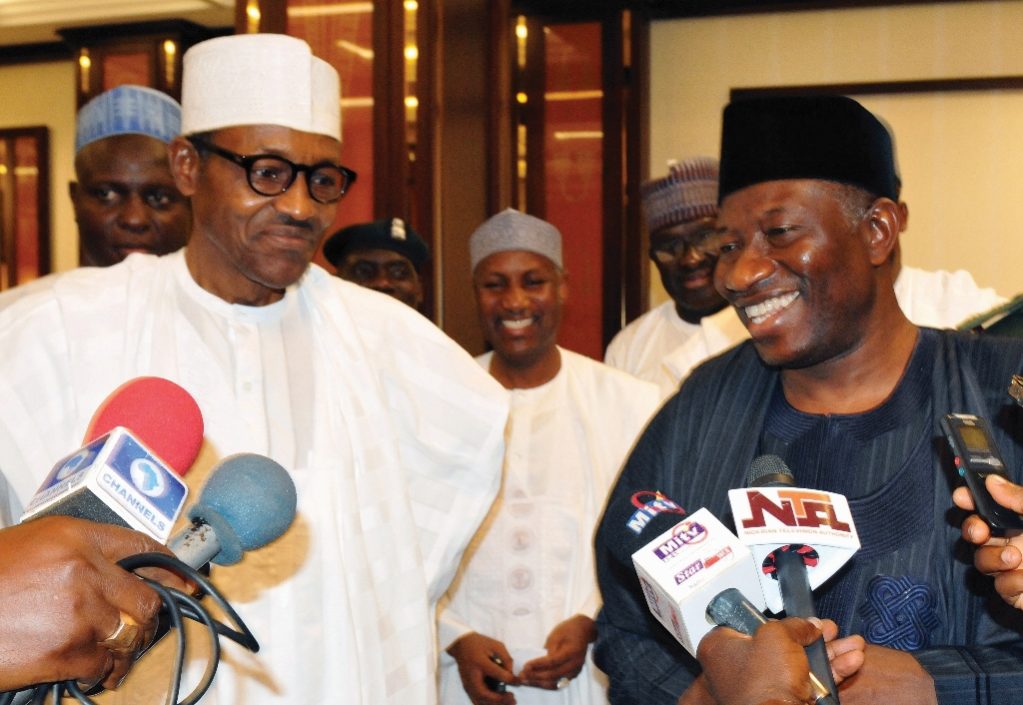In Nigeria, citizens, businesses and investors are struggling to come to terms with the absence of a cabinet to run Africa’s largest economy. When President Muhammadu Buhari took office, from Goodluck Jonathan on May 29, few would have imagined that there wouldn’t be a cabinet in place, or awaiting parliamentary approval, by the end of June.
Buhari himself hasn’t said much, leaving the explaining to his aides. At the beginning of July, Spokesman Femi Adesina said that “at the fullness of time, the ministers will be appointed.”
There has been speculation that there won’t be a cabinet in place until September. If that is true, it will mean that the new ministers will spend the last quarter of the year coming up to speed with their new assignments, and real work will not start until 2016.
The only presidential staff appointments made by the second week of July were three spokespersons (two for the president; one for the vice president), a State Chief of Protocol, and his principal security aides – one of which was replaced weeks later, for undisclosed reasons.
On July 13, six weeks after the inauguration, the President replaced all the military chiefs and the National Security Adviser (NSA). The key positions of presidential Chief of Staff and a Secretary to the Federal Government, who serves as Secretary to the Cabinet, as well as a liaison between the presidency and the sprawling government bureaucracy, however, remain unfilled.
Loading...
Team Austerity
Amid the uncertainty about the president’s team, there are, however, things one can bet on. One is that it will be a smaller cabinet than his predecessor’s, which had 42 ministers. But, the degree to which it will be smaller is constrained by a constitutional provision that says there must be at least one minister from each of Nigeria’s 36 states.
The Transition Committee that Buhari set up in May, to liaise with the outgoing government and prepare a smooth handover for the new government, recommended a reduction in the number of ministries from 28 to 19. Going by that proposal, only nine of the existing ministries will not be merged or scrapped: Defence, Federal Capital Territory, Education, Trade and Investment, Finance, National Planning, Labour, Justice, and Foreign Affairs.
Ambitious as the plan might seem, it’s not unfamiliar territory for Buhari. As Head of State 30 years ago, he presided over a wide-ranging regime of cuts: laying off thousands of civil servants and freezing wages, abolishing hundreds of local government areas, and rolling out an austerity budget that slashed government spending by 15%.
Considering that the economy he is inheriting is in straits just as dire as then, chances of another austerity-inflected outing are high. Indeed there’s a cost-saving element to a delay in the appointment of a cabinet and advisers, who will have to be paid generously in housing and travel allowances, and armored convoys.
Speculation, Inc.
In the weeks following Buhari’s unprecedented electoral victory, the rumour mills were running with news of expected appointments. Documents regularly circulated on social media, purporting to list the persons who had been nominated for appointments. All of them turned out to be false. Early into the new administration, it was reported that Chief Ogbonnaya Onu had been named Secretary to the Government of the Federation, Nigeria’s designation for Cabinet Secretary. Weeks later, the speculations shifted to the still-vacant position of Chief of Staff. News filtered out that retired Colonel Hammed Ali, Buhari’s long-time personal Chief of Staff, had been appointed. Again, it turned out to be false.
The two men have been close to the president since he joined partisan politics in the early 2000s and are still very likely to bag important roles in his government. Other long-time associates tipped for important positions include Tam David-West, who served under Buhari as the petroleum minister when he was military head of state in 1984-85, and Abdulrahman Dambazau, a former army chief and head of security for the presidential campaign. Dambazau, widely expected to be named National Security Adviser, may now be in the running for Defence Minister.
Former state governors, Kayode Fayemi (Ekiti), Babatunde Fashola (Lagos) and Rotimi Amaechi (Rivers) are also expected to be named to cabinet or presidential staff positions. The trio played prominent roles in the Buhari presidential campaign – Amaechi as campaign director-general, Fayemi policy director, while Fashola oversaw fundraising.
Party leaders, like former Governor of Lagos State, Bola Ahmed Tinubu, and former Vice President Atiku Abubakar, are also expected to nominate candidates for presidential consideration, but there is no doubt where the final decisions lie.
Policy Direction
Apart from the 800-page report of the Transition Committee, the new government can also count on another 73-page one; the outcome of a two-day summit that the ruling party’s policy directorate, under Fayemi, convened in May; bringing together technocrats, politicians and public officials.
With the support of the United Nations Development Programme (UNDP) and management consulting firm, Bain & Company Nigeria, the summit produced detailed recommendations on several sectors of the government: oil and gas, education, healthcare, security, agriculture and foreign affairs, among others. The reports outlined specific plans for the incoming ministers to implement in the short term, medium term and long term. As things stand, it’ll be more than 100 days from May 29 before a cabinet is in place, and the incoming ministers will have some recalibrating to do.
For business executives and investors, the reassessing will be an unending obligation. As soon as the cabinet is named, the next round of tea-leaf reading – this time for policy direction – begins.
Loading...
